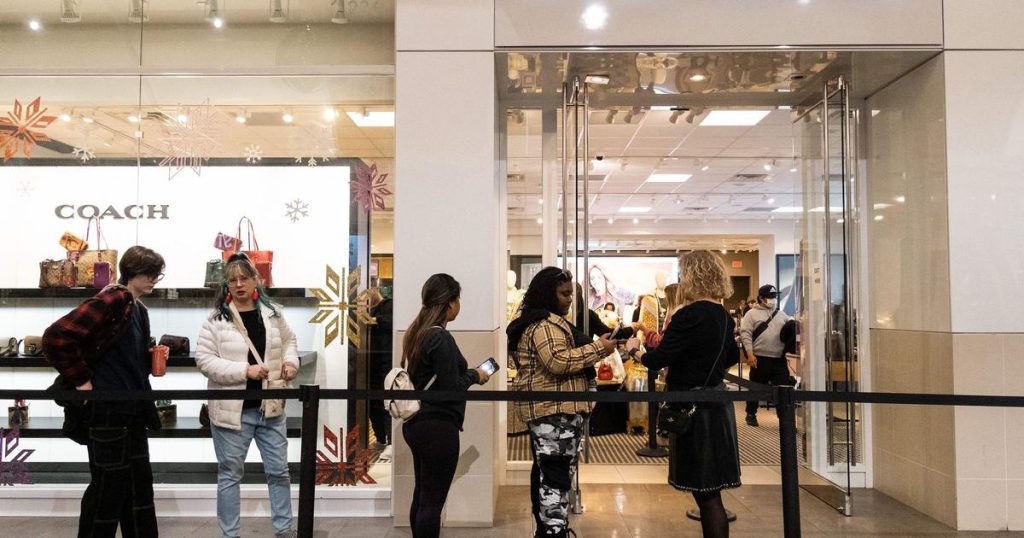The Federal Trade Commission is taking legal action to prevent Tapestry’s $8.5 billion acquisition of Capri Holdings, citing concerns about reduced competition and increased prices in the affordable luxury sector. The proposed deal would consolidate six fashion brands under one company, including Tapestry’s Coach, Kate Spade, and Stuart Weitzman, as well as Capri’s Michael Kors, Versace, and Jimmy Choo. The FTC argues that the acquisition could negatively impact consumers who benefit from the competition between Tapestry and Capri, as well as the thousands of workers employed by both companies worldwide.
The director of the FTC’s Bureau of Competition, Henry Liu, expressed concerns that Tapestry’s goal of becoming a serial acquirer could harm consumers and workers in the fashion industry. The agency believes that the deal would eliminate competition for affordable handbags and potentially lower wages and workplace conditions for hourly workers. Tapestry, however, has rejected the FTC’s claims, arguing that the agency lacks an understanding of the marketplace and consumer behavior. The company asserts that Tapestry and Capri face competition from both lower-priced and higher-priced products in the global luxury industry.
Tapestry announced its intention to acquire Capri in August of 2023, with the companies having generated over $12 billion in sales collectively in 2022. The FTC’s legal challenge to block the acquisition highlights the ongoing concerns about consolidation in the fashion industry and its potential impact on consumers and workers. The dispute between Tapestry and the FTC underscores the regulatory scrutiny faced by large companies seeking to expand their market share and the importance of maintaining competition in the industry to protect consumers and workers.
The legal battle over the proposed acquisition reflects broader trends in the fashion industry, where companies are increasingly seeking to consolidate their market positions through mergers and acquisitions. The controversy surrounding Tapestry’s bid for Capri underscores the potential risks of monopolistic practices and the importance of regulatory oversight to ensure a level playing field for businesses and consumers. The outcome of the dispute will have implications for the future of competition in the affordable luxury sector and the rights of workers in the fashion industry.
The Federal Trade Commission’s lawsuit against Tapestry’s acquisition of Capri highlights the challenges facing regulators in ensuring fair competition in the fashion industry. The ongoing legal battle underscores the risks associated with large acquisitions and the need for rigorous oversight to protect consumers and workers. As the case unfolds in federal court, the outcome will have far-reaching implications for the future of the affordable luxury sector and the competitive landscape of the fashion industry as a whole.
The dispute between Tapestry and the FTC over the proposed acquisition of Capri Holdings raises important questions about competition, pricing, and worker protections in the fashion industry. The legal challenge highlights the complexities of regulating mergers and acquisitions in a rapidly evolving market and the potential consequences for consumers and employees. The outcome of the case will shape future policies and regulatory practices in the fashion industry, with potential implications for market competition, pricing strategies, and labor practices.


